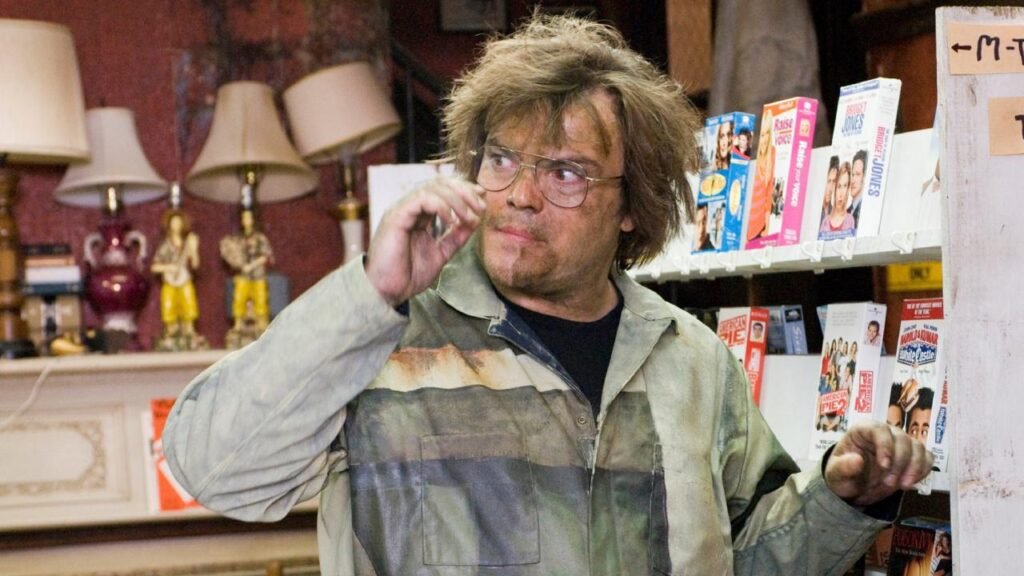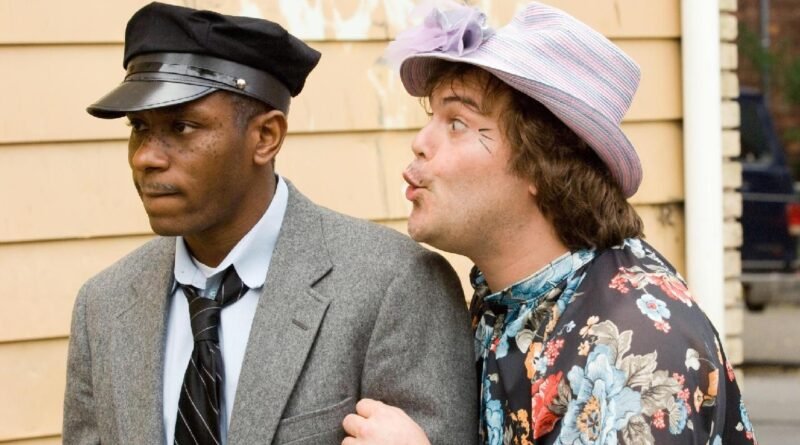Hidden Gems: Be Kind Rewind (2008)

Be Kind Rewind, 2008 (Jack Black/Mos Def) New Line Cinema
I don’t usually review movies this recent for a “hidden gem,” but I was taken prisoner by the unexpected charm of Be Kind Rewind. I didn’t expect to enjoy the movie as much I did. I thought it would be quirky a la Michel Gondry, director of two movies I absolutely adore: Eternal Sunshine of the Spotless Mind and The Science of Sleep. Gondry has a homegrown (and handmade) sensibility.
I feel like a story begins, and then he captures it with his imagination, and then moves to a conclusion from that point. Gondry is like a kid making movies, but then he turns his heroes (in this case, Mos Def and Jack Black) into kids making movies. Be Kind Rewind put a smile on my face in a way Hugo or Cinema Paradiso never did. I didn’t know I was watching a movie about movies and “movie magic” (whatever that is) until the end credits started rolling.

The film starts with the abbreviated, home movie version of the life of piano player Fats Waller and his dubious connections to Passaic, New Jersey and Danny Glover’s “Be Kind Rewind” video store. The year is 2003 (most likely timed to coincide with the flagging popularity of VHS and the rise of DVD). A bigger video store chain is taking all of Glover’s business. In addition, the store is about to be sold to a developer.
Cashier Mos Def and buddy Jack Black are faced with a dilemma when Black magnetizes (and effectively erases) all of the store’s video cassettes after a freak accident in a power plant. When a customer (Mia Farrow!) asks for a copy of Ghostbusters, Black comes up with the idea to remake the movie with a video camera and some incredibly low-tech visual effects. Black and Def essentially boil down the movie to its basic components. They do the same for other titles, including Rush Hour 2 and Driving Miss Daisy.

Soon, the tapes become popular and demand for “Sweded*” titles go through the roof. Def uses the store’s windfall to stay in business, but movie studio lawyers (represented by Sigourney Weaver, in a fun cameo) demand the tapes be destroyed claiming copyright infringement. Black and Def then decide to make a fictionalized story about Fats Waller and his time in Passaic and they get the whole neighborhood involved in the making of the movie.
They hope to use the proceeds to keep the store away from developers. While I enjoyed the making of the Fats Waller movie, Be Kind Rewind had no real resolution to the story or the characters other than that we can all be swept up in the magic of movies, and we don’t necessarily need big budgets, movie stars, or expensive gear to make movies. Melonie Diaz rounds out the cast as a dedicated amateur actress who rivals Black’s manic energy and Def’s enthusiasm.

Despite a clunky narrative, Be Kind Rewind was made with love for film and storytelling. I was impressed with the fact that different studios provided permission for their very real films to be “Sweded.” It was also interesting to observe Gondry’s disdain for the “business” of moviemaking, as well as copyright laws. He believes, as I do, that film is an art to be shared with everyone.
Maybe one day, as Francis Coppola once observed, film will truly become an art form and overhyped superhero franchises with hyper-inflated budgets, coddled “talent,” and tired premises will ebb in the cultural tide. Filmmakers of the future should understand that the story is the hero, not the studios or the unions or the visual effects or the equipment or any number of groups lining up to grease their pockets. Be Kind Rewind is the perfect film school education.
*”Sweded” refers to a fictitious process of “re-imagining” a popular American movie by Swedish filmmakers. Even if Black and Def came up with the idea on the spot, I suspect the idea’s origin came from the phenomenon of Turkish filmmakers remaking films such as Star Wars, Superman, and Batman. Even on (very) limited budgets, many of these were cleverly made. I wonder if this is what inspired Gondry.

